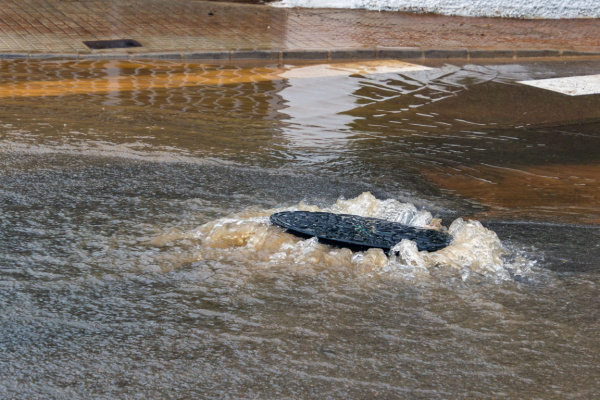Ophelia tracked northward across eastern North Carolina into southeastern Virginia on Saturday. Although it lost wind intensity while moving over land and was classified as a tropical depression by Saturday evening, it continued to pack a punch across much of the East, unleashing drenching rain and threatening flooding from eastern North Carolina to southern New Hampshire.
The storm’s gusty winds cut power to nearly 30,000 customers as of 11 p.m. EDT Saturday, according to PowerOutage.us. Pennsylvania topped the list of affected states, the utility tracker reported. Wind gusts as high as 80 miles per hour were measured in Wrightsville Beach, North Carolina.
As AccuWeather reports, hazardous conditions developed along the coast even well ahead of the storm’s landfall when Ophelia crashed onshore near Emerald Isle, North Carolina, around 6:15 a.m. EDT Saturday. It was a strong tropical storm with maximum sustained winds of 70 mph at landfall. Several people had to be rescued due to dangerous seas stirred by Ophelia even as it approached land.
As the storm inched north once inland, dangerous episodes of flash flooding were developing. Greenville, North Carolina, located in the eastern part of the state, was enduring a “major flash flood event” on Saturday afternoon, according to storm chaser Aaron Rigsby, who added that several vehicles had been carried “a sizeable distance.” Entire parking lots filled with cars were flooded, he reported.
As of Sunday afternoon, Ophelia had maximum sustained winds of 25 mph, but was capable of producing higher gusts. Although the center of circulation had become less defined, a solid shield of rain on the storms’ northern flank continues to drench portions of the mid-Atlantic and Northeast.
AccuWeather forecasters say that Ophelia will continue to advance northward over land through Sunday before it turns northeastward over the mid-Atlantic and Northeast. The storm will slow its forward motion and prolong the duration of soaking rain affecting millions across the mid-Atlantic.
—
Photo Credit: Fernando Astasio Avila / Shutterstock.com
